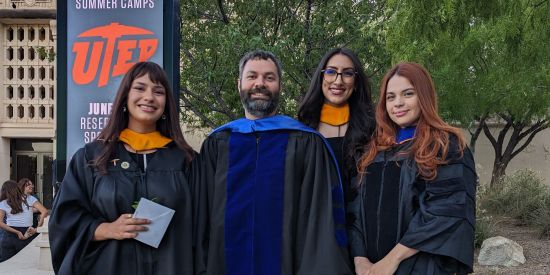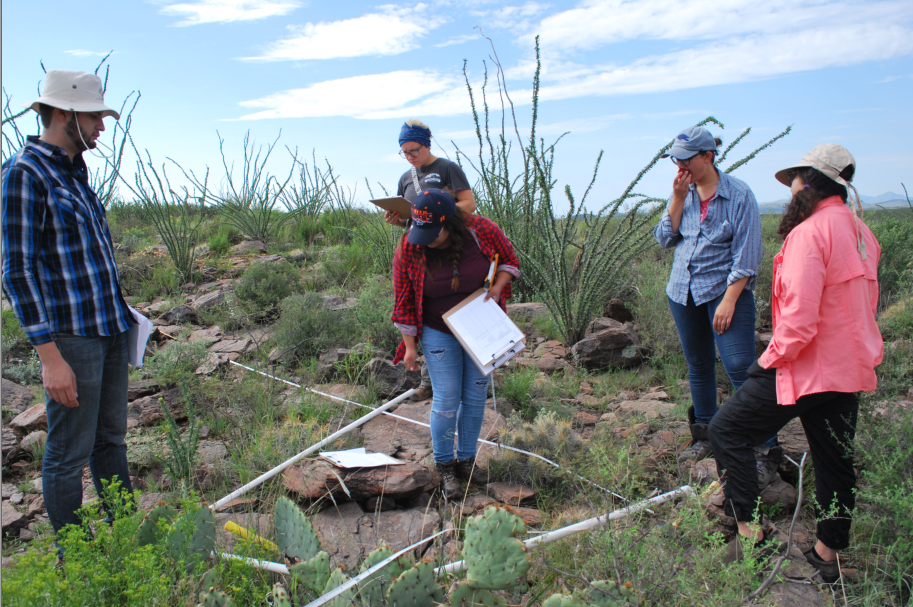
 REETINGS PROSPECTIVE STUDENTS! I am always open to
considering applications from talented, dedicated students interested in earning
Ph.D.
degrees in Biology. If you're interested, please email me at ajdarrouzetnardi@utep.edu. I am not recruiting at the
M.S. level
currently.
REETINGS PROSPECTIVE STUDENTS! I am always open to
considering applications from talented, dedicated students interested in earning
Ph.D.
degrees in Biology. If you're interested, please email me at ajdarrouzetnardi@utep.edu. I am not recruiting at the
M.S. level
currently.
CURRENT GRADUATE OPPORTUNITIES
I have completed recruitment for Ph.D. students for Fall 2026 for our work on the CrustNet project. I will leave this ad here though as an idea for the type of opportunities typically available in the lab.
Ph.D. student: CrustNet
The Darrouzet-Nardi Laboratory at the University of Texas at El Paso is now recruiting a Ph.D. student in UTEP's Ecology and Evolutionary Biology Ph.D. Program to work on the CrustNet project. CrustNet is an international distributed experimental network focused on biocrust ecology, examining biocrust biodiversity, function, and resilience in the face of global change. The role for this Ph.D. student will be to run CrustNet sampling nodes in the Chihuahuan Desert and to analyze biocrust samples from sites around the world. It is the perfect project for a desert or biocrust lover and represents a tremendous opportunity to network with the global community of biocrust researchers and to develop high-impact publications based on network data.Students will have opportunities to connect with the CrustNet investigator team and the broader biocrust research community through the Biocrust conference series and collaborations with dozens of labs worldwide. Specific areas of focus in our lab will include soil characteristics, elemental composition, soil enzymatic function, and contributions of biocrusts to ecosystem productivity in both observational and experimental components of the project. Planned experimental work includes a standardized biocrust disturbance and recovery experiment to be conducted in 100+ global locations. There will also be chances to travel to field sites in the Western U.S. and internationally.
The ideal candidate will have experience working with biological soil crusts, but backgrounds in dryland ecology, soil biogeochemistry, or related fields are also strong preparation. If you are interested, send an inquiry email to ajdarrouzetnardi@utep.edu.
For this work, potential students should apply to the Ecology and Evolutionary Biology Ph.D. program at UTEP.
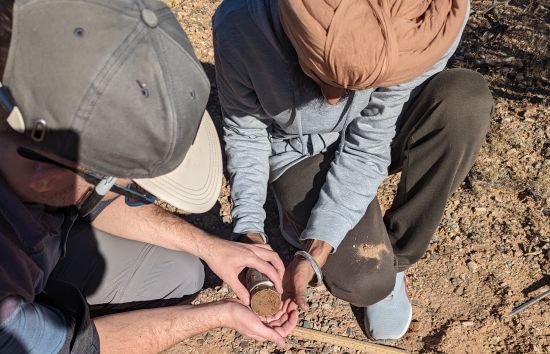
THE APPLICATION PROCESS
Inquiring about graduate opportunities via email is recommended for entry to our program as it is for many ecology programs. Here's a great guide if you're not sure how to approach this. When you reach out, emphasize (1) your experience and fit with research topics and (2) your preparation in writing manuscripts for peer review. For Ph.D. applicants, it is especially helpful to note experience with publishing in well-recognized journals. Scimago Journal Rankings can help--it's not definitive, but Q1/Q2 will give you an idea. If you have publications in regional or less widely indexed journals, or unpublished drafts or theses, etc., these are still great experience. Mention these as well in the application, especially if there are plans to submit to high impact journals. Because publishing is often the hardest part of a Ph.D., I place particular weight on evidence of writing and publishing readiness.
If you have already corresponded with me via email and you are ready to apply:
- Go here to the UTEP graduate school application portal.
- Select your citizenship status.
- Click "Science"
- Select the relevant program:
I accept and advise students in two Ph.D. and two Master's programs. If you're not sure what would be best for you, I can help you figure it out via email correspondence.
- Ph.D. in Ecology and Evolutionary Biology
- Ph.D. in Environmental Science and Engineering
- M.S. in Biological Sciences
- M.S. in Environmental Sciences
LAB FOCUS
Our lab studies how environmental change shapes ecosystems from the Arctic tundra to the Chihuahuan Desert. The subdisciplines within ecology that we work in--including biogeochemistry, soil ecology, plant ecophysiology, and global change--are currently undergoing a transformation in methods, which allows students to make a true contribution to the exploration of a vast frontier of knowledge. Studies of soils have historically been limited by frustrating and difficult-to-use methods, but that is changing right now. With access to new data-rich methods and instrument advances, we are now getting a firsthand look at how plants, soil organisms, and the soil matrix interact. For more information on current projects, please see this page.
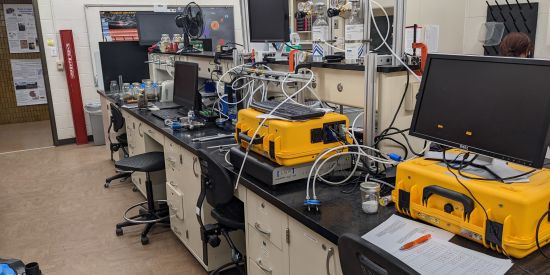
INCLUSION
Inclusion is a core value in my lab group, and we have a track record of being a team that includes many students from backgrounds that are traditionally underrepresented in science such as first-generation college students, women, and minorities. Being at UTEP, we naturally have many Mexican American, Mexican, and other Hispanic students who have been major contributors to all lab projects. I also strongly support women in the lab and in science. For example, graduate students in the lab have started pods of the 500 Women Scientists group in Moab and El Paso. If you are a member of an underrepresented group, please be especially encouraged to apply, or just reach out for career advice.
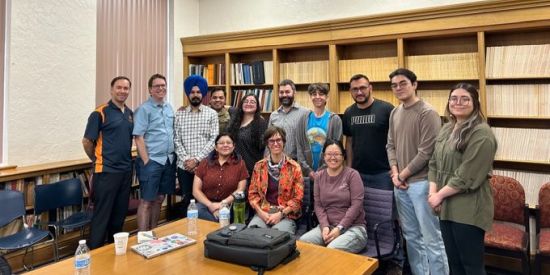
INTERNATIONAL STUDENTS
I receive many inquiries from international students seeking opportunities, and I try to respond to most messages. Many inquiries come from fields such as toxicology or biotechnology that are not closely aligned with ecology, so I encourage you to review the qualifications section below to see what preparation fits best with my lab. For international applicants, evidence of publication in well-recognized journals is especially important, since this provides the clearest indication of readiness for success. This expectation applies to domestic students as well, but it carries particular weight when I am less familiar with institutions and degree programs abroad. If your background aligns with these areas and you have evidence of strong writing and publishing potential, I welcome your inquiry.
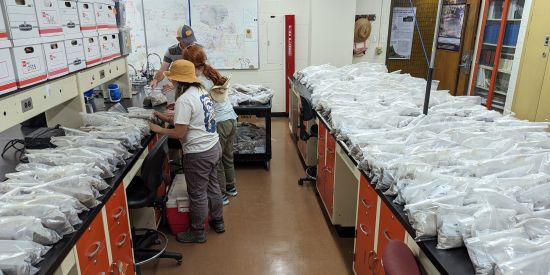
FUNDING
All accepted students are guaranteed a stipend through teaching or research assistantships. There are also opportunities to apply for fellowships such as the National Science Foundation's Graduate Research Fellowship Program (NSF GRFP) for which UTEP students have proven competitive. If you are interested and qualified, I will help you with your applications for these types of programs. The lab currently has several major National Science Foundation grants and several more in submission and development. I will continue to apply for such funding to support your work. In all grant applications that I submit, I include funding for student salaries and research projects. In summary, there are many financial support possibilities including teaching assistantships, fellowships, and research assistantships that are supported by external grants.
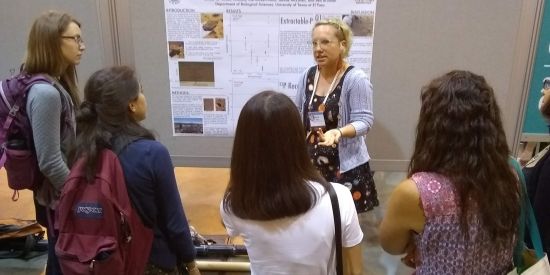
QUALIFICATIONS
I'm generally looking for smart, motivated students with a solid transcript showing your ability to perform well in science courses: biology and chemistry in particular. As stated above, evidence of writing proficiency and ability to complete writing tasks are also crucial. Knowledge in the following areas of biology are also particularly valued: soil gas exchange including instrumentation such as LiCor, chambers, etc.; dryland ecosystems, including field experience in these areas; and general broad background and coursework in ecology, especially ecosystem ecology. The following ancillary skills can also be useful and help you make a niche for yourself, though are not required: computer programming, statistics, bioinformatics, web design, graphic design, engineering, and handywork. To summarize:
Essential
- science degree
- writing experience and skill
A good mix of the following:
- ecology coursework, especially ecosystem ecology
- gas exchange concepts and instrumentation
- experience in dryland ecosystems
- laboratory chemistry skills
- statistics and programming
- ancillary skills (listed above)
CAMPUS VISITS
I have found that students often don't know what to expect in El Paso or at UTEP until they see it firsthand. For strong domestic applicants under serious consideration, I can provide support for a campus visit so that you can meet the lab, see our facilities, and get a sense of the city and campus environment. For international applicants, I am happy to arrange a virtual visit so you can meet with me and current lab members, ask questions, and get a feel for the group. Past visitors have consistently been impressed by the vibrant campus, active research community, and opportunities available here.
Thanks for your interest and please don't hesitate to contact me if you have questions: ajdarrouzetnardi@utep.edu
